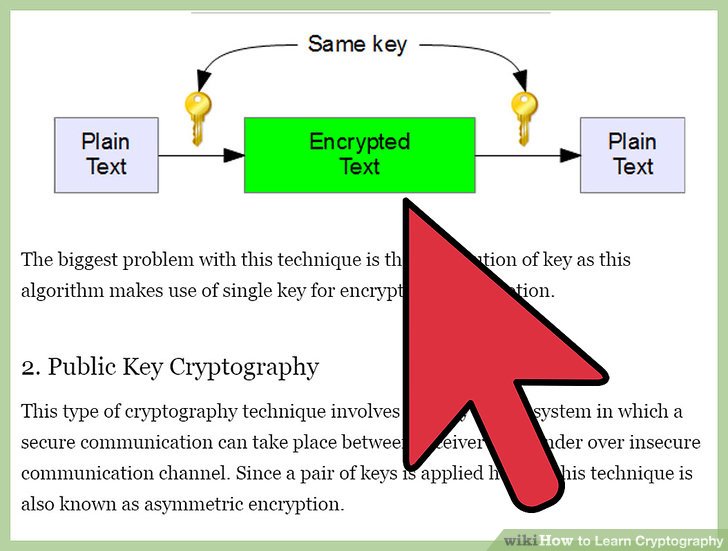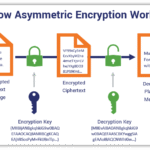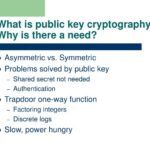The digital age has rendered cryptography not merely a field relegated to the fringes of computer science, but a cornerstone of contemporary security practices. As our interactions on the internet proliferate, so too do concerns regarding privacy and data integrity. Yet the question remains: should the layperson delve into the intricate world of cryptography, or is it more prudent to leave such complex matters to the professionals? This article aims to illuminate both perspectives, ultimately challenging our preconceived notions about this vital discipline.
To begin, it is essential to understand what cryptography entails. At its core, cryptography is the science of encoding and decoding information. It encompasses a myriad of techniques, from simple ciphers to advanced algorithms securing vast data transfers. As this field continuously evolves, it becomes increasingly critical for individuals—whether or not they are professionals—to grasp its fundamental principles.
One compelling argument for learning cryptography lies in the empowerment it provides. In an era where data breaches and privacy violations are alarmingly frequent, a foundational understanding of cryptography equips individuals with the knowledge to better protect their own information. Familiarity with concepts such as encryption, digital signatures, and hashing allows for informed decisions when using online services. This self-sufficiency can mitigate risks, fostering a more secure digital environment for individuals and small businesses alike.
Furthermore, demystifying cryptography enhances critical thinking skills. Engaging with its complexities encourages an analytical mindset, beneficial beyond the realm of data security. The recursive nature of understanding—grasping a concept only to delve deeper into its implications—fuels intellectual growth. This ongoing process cultivates a capacity for problem-solving and innovation, valuable skills in any domain.
On the other side of the coin, the intricacies of cryptography are daunting. The landscape is rife with technical jargon and mathematical frameworks. For the average person, navigating through encryption algorithms, key exchange protocols, and the nuances of public key infrastructure can be overwhelming. This equivocation raises an important consideration: does the average individual possess both the time and aptitude to master concepts that even seasoned experts grapple with? While the inquiry for knowledge can ignite curiosity, the harsh reality of demanding technical skills suggests that not everyone may find success in this pursuit.
Moreover, the ramifications of misapplying cryptographic principles can be dire. Inappropriate use of cryptographic tools can lead to vulnerabilities rather than fortifications. An untrained individual with limited knowledge could inadvertently compromise their own security in a misguided attempt at safeguarding it. This potential for error underscores the argument that professionals, who possess thorough expertise and experience, are generally better equipped to handle sensitive data securely.
However, it is worth noting that more sophisticated comprehension of cryptography among the general populace could catalyze a positive shift in the industry. When consumers possess simple knowledge of security practices, they can demand more transparency and better security measures from organizations. This societal pressure creates an ecosystem where businesses prioritize data protection, compelled by customer awareness. Thus, a well-informed public can act as a catalyst for improved industry standards, spurring a cultural movement towards tighter security protocols.
To reconcile these two viewpoints, one might consider a balanced approach. Embracing a rudimentary understanding of cryptography does not necessitate an exhaustive mastery of the field. Introductory knowledge allows individuals to grasp the general workings of encryption, providing a solid foundation without the heavy burden of technical expertise. Online courses, books, and even casual tutorials are increasingly accessible, offering a non-intimidating entry point for those interested.
Moreover, learning cryptography can be a rewarding intellectual pursuit. The field comprises a rich tapestry of history, mathematics, and computer science. Engaging with its narratives can satisfy innate curiosities that intertwine with humanities, technology, and ethics. For many, the challenge of deciphering complex algorithms and understanding their application can be invigorating, sparking an enthusiasm that projects beyond the realm of mere data protection.
Ultimately, the decision to explore cryptography hinges on personal interest and utility. For individuals yielding a profound curiosity towards technology, a foundational grasp of cryptographic principles can open the door to further learning and exploration. It provides a framework within which one can comprehend the complexities of digital security, contributing to a more secure personal and communal online experience.
In today’s interconnected world, anxiety surrounding data security will not dissipate but intensify, making it even more vital to engage with these concepts. Knowledge fosters resilience, and the more individuals understand cryptography, the better equipped they will be in navigating the digital realm. Thus, while it may be tempting to defer all responsibility to the experts, a balanced approach that encourages curiosity and self-education in cryptography could potentially herald a new era of informed digital citizens.








Leave a Comment